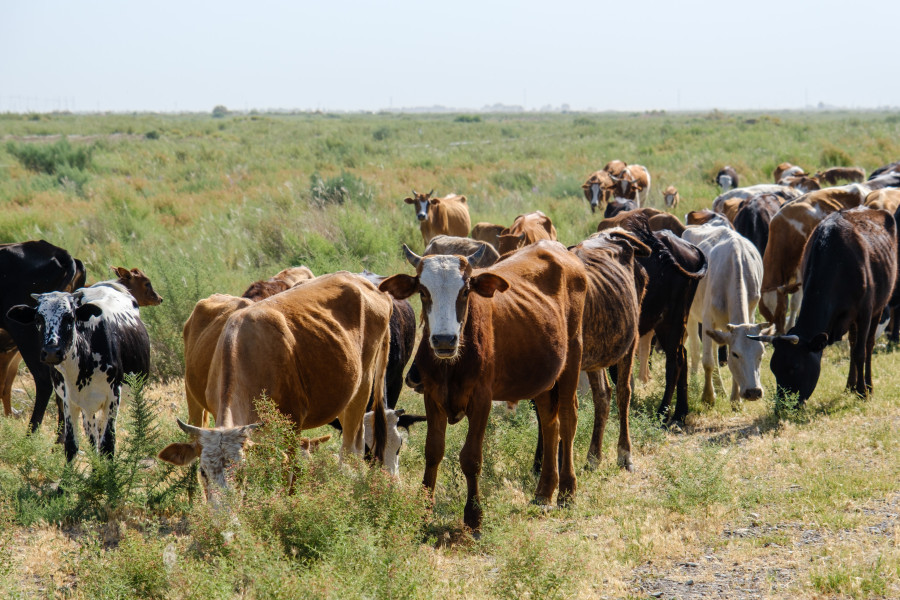National
International Livestock Research Institute to help Nepal produce vaccine against lumpy skin disease
The government had also sought a master seed virus from India to produce vaccine doses within the country. The disease killed over 50,000 cattle and infected nearly 1.5 million in Nepal last year.
Post Report
Kenya-based International Livestock Research Institute has agreed to help Nepal produce a vaccine against lumpy skin disease, which killed thousands of cattle and infected hundreds of thousands throughout the country last year.
The Department of Livestock Services has been working to produce vaccines within the country after a massive outbreak of the disease in 2023.
“It takes a few months to produce a vaccine against the lumpy skin disease in the country as it is a stepwise process,” said Dr Chandra Dhakal, information officer at the department. “We have been working to develop vaccine doses in the country and have held technical workshops. The International Livestock Research Institute has agreed to provide us with a master seed virus.”
The international agriculture research institute, co-hosted by Kenya and Ethiopia, works with partners worldwide to enhance the roles that livestock play in food security and poverty alleviation, mainly in Africa and Asia.
According to officials at the Department of Livestock Services, Tanzania-based Hester Biosciences Africa Limited will provide technical support to the government agency in producing vaccine doses. The organisation has a 20-year track record of manufacturing and distributing livestock drugs and vaccines.
Lumpy skin disease, which is caused by a virus, is an infectious disease that primarily affects cattle. The virus, which is from the family Poxviridae, mainly spreads through blood-sucking vectors—ticks, mites, and mosquitoes. Over 50,000 cattle had died and nearly 1.5 million were infected by the highly contagious disease in Nepal last year.
Nepal has also requested India for a master seed virus and some technical help to produce a vaccine against the deadly diseases. Minister for Agriculture and Livestock Development Bedu Ram Bhusal during his India visit last year requested his counterpart for the master seed virus for vaccine production and vaccine doses to deal with the spread of the infection of lumpy skin disease. The concerned agency had also furnished a concept paper as sought by the Indian authorities for vaccine production.
Without the master seed virus, which is pure, safe and immunogenic, vaccine production is impossible, according to officials. Nepal has the capacity and expertise to produce animal vaccines within the country, and what is lacking is seed virus, they say. The country has been producing more than 56 million doses of 13 different types of animal vaccines and has been exporting them too.
Officials at the department said that they have approached organisations in African countries after they realise that India would not offer the help they sought.
Due to the disease last year, farmers incurred heavy losses, including deaths of animals, a decline in dairy production, and their consequent impact on farming. Farmers in the hill districts lost more of their oxen because they continued putting the sick animals to work due to a lack of information about the disease.
Some animals also died of vaccination at the time of infection due to the double impact—infection of virus and stress effects of the vaccination.
Dhakal said that the department is procuring one million doses of the vaccine against the deadly disease in the ongoing fiscal year. The vaccines will be administered to cattle free of cost.




 13.12°C Kathmandu
13.12°C Kathmandu













